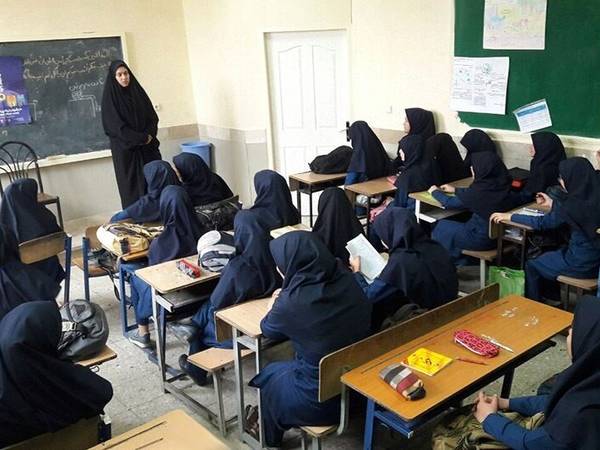An Iranian teacher's union has sounded the alarm over a rise in student suicides, blaming it in part on religious morality enforcement and neglect of youth mental health issues.
The latest suicide of a female student is part of a "harrowing cycle deeply rooted in flawed policies, systemic pressures within the education sector, ideological impositions, and the disregard of authorities for the growing mental health crisis in schools," the Coordinating Council of the Iranian Teachers’ Trade Associations (CCITTA) said in a statement on Thursday.
The union was referring to the death of 16-year-old Sogand Zamanpour, who died by suicide in Masjed Soleiman in southwestern Iran. No further details about her case publicly known.
Her death follows that of Aynaz Karimi in Kazeroon, Fars province, earlier this month. Aynaz faced pressure from her school principal for minor infractions, including wearing nail polish and dyeing her hair, according to the Coordination Council of Iranian Educators' Trade Associations. This led to her eventual expulsion, after which she ended her life—a case that CCITTA said highlights the psychological toll of a repressive educational environment.
A week earlier, Arezou, a 16-year-old Afghan-Iranian girl in Tehran, ended her life after a confrontation with her school principal over wearing jeans instead of the required uniform. Her father explained that she left the school upset and later jumped from a sixth-floor apartment. He has held the school accountable for her death and filed a formal complaint.
Arezou’s case sparked comparisons on social media between Afghan and Iranian girls, with some pointing out the irony of escaping Taliban oppression only to face similar restrictions in Iran.
The teacher's union said the grim phenomenon is linked to official neglect of students' mental health. The council condemned the practice of using schools to instill ideological beliefs, warning that such policies strip students of their identity and future.
Established in 2001, CCITTA serves as the coordinating body for around 20 provincial chapters of the Iranian Teachers’ Trade Association (ITTA). The council further criticized the government’s education policies for imposing strict ideological frameworks that undermine students' individuality and motivation.
Reflecting on the initial cases, Zahra Behrouz Azar, Deputy for Women’s Affairs in Masoud Pezeshkian’s administration, addressed the suicides of two female students in an interview with Ham-Mihan Online earlier this month.
"While it may not be accurate to suggest an upward trend, even these two cases are far too many and deeply unacceptable," she said.
The strict enforcement of hijab rules in Iran continues to place significant pressure on women and girls and triggered months-long protests in 2022 following the death of a 22-year-old woman in police custody for allegedly wearing her hijab improperly.
Nevertheless, Iran’s parliament is set to unveil its Hijab and Chastity Law next month, which introduces new fines for violations of mandatory hijab regulations, Speaker Mohammad Bagher Ghalibaf announced on Wednesday.
Ghalibaf acknowledged the delay in finalizing the law was due to security concerns stemming from the 2022 protests.
